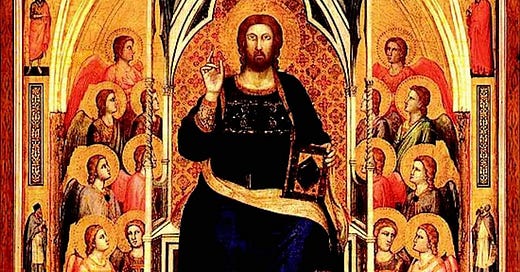Honouring Jesus as we honour the Father
Looking at Rob and Ed's helpful HANDS acronym, from Putting Jesus in His Place
In the wonderful book Putting Jesus in His Place, Rob Bowman and Ed Komoszewski share an acronym which highlights five ways that the New Testament authors and Jesus himself present Jesus as the divine Son of God.
Honours: Jesus shares the honours due to God.
Attributes: Jesus shares the attributes of God.
Names: Jesus shares the names of God.
Deeds: Jesus shares in the deeds that God does.
Seat: Jesus shares the seat of God’s throne
They say that just as examining the nail prints in Jesus’ hands convinced Thomas of his deity, leading him to exclaim My Lord and my God (see John 20:28), so the biblical teaching about Jesus found in his HANDS constitutes a powerful cumulative case for regarding Jesus as our Lord and God.
Honours: Jesus shares the honours due to God.
In the first section of their book they show that Jews, who were sure there is only one God and we must worship only him, began honouring him in the same way they honoured this one true God. In John’s Gospel we read that the Jews listening to Jesus were angry that he was calling God his own Father, making himself equal to God.
Instead of apologising for their misunderstanding, Jesus doubles down and says that whatever the Father does, the Son does, and that just as the Father raises the dead, the Son also gives life to whom he wants and that the Father wants all people to honour the Son just as they honour the Father! In fact, anyone who does not honour the Son does not honour the Father who sent him! (See John chapter 5)
In the New Testament we find angels and people worshipping Jesus, and after his ascension and enthronement, praying to him and singing to him. In Revelation, angels repeatedly tell John not to worship them, but when he falls down in worship when he sees the Risen Jesus, this is encouraged, not forbidden.
I hope this gives you a taste for exploring this topic in the Bible for yourself. You will find Rob and Ed to be reliable guides. This topic is one of the first I studied as a teenager, over fifty years ago, when I first began my theological musings.



